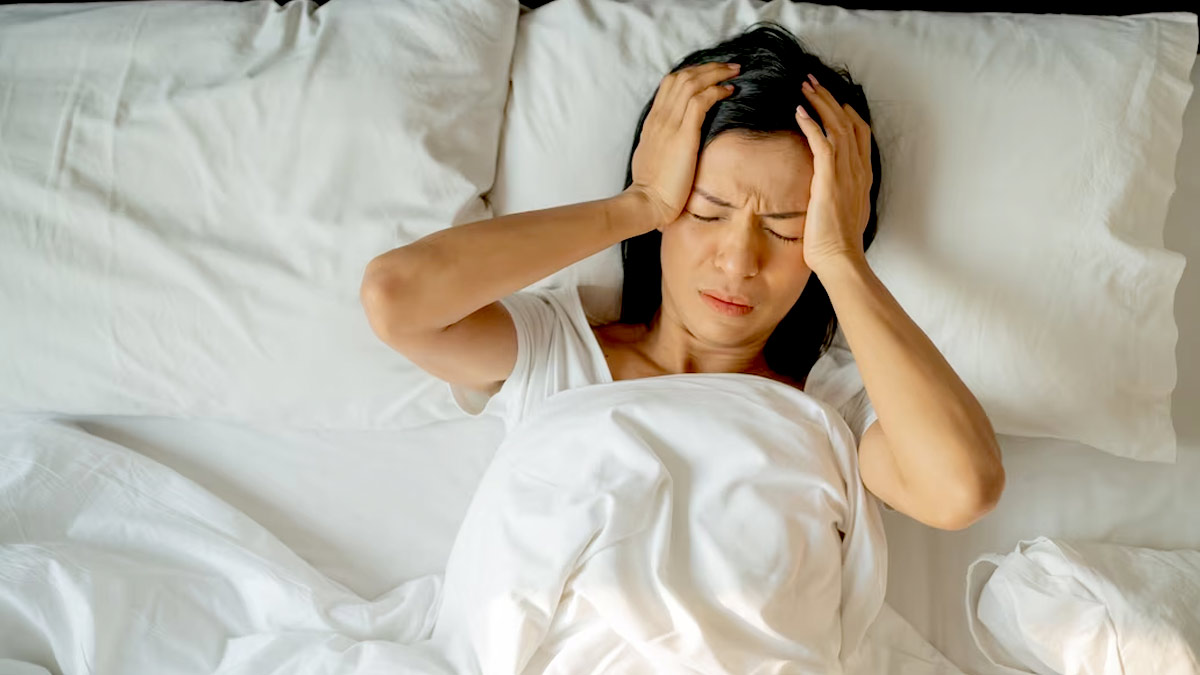
Sleep is an essential aspect of human life, just like oxygen and food. Lack of sleep can significantly impact your life. Dr Vamsi Krishna Mutnuri, Consultant Interventional Pulmonologist, Yashoda Hospitals, Hyderabad, explains sleep disorders that can interfere with your everyday lifestyle.
Insomnia
One of the prevalent sleep-related problems that can disrupt your everyday life is insomnia. Dr Vamsi defines this condition as the inability to fall asleep. According to a review published in 2019 by the National Center for Biotechnology Information, it was suggested that up to 75 per cent of individuals aged 65 and above experience symptoms of insomnia. "In today's competitive and demanding era, many individuals sacrifice sleep for other personal or professional activities, leading to a detrimental trend of their health," said the doctor.
Sleep Apnoea
For many people, snoring can also affect their quality of sleep and in turn their life. Dr Mutnuri "Although it is not always problematic, it can indicate some serious issues, such as sleep apnoea."

He said, "Sleep apnoea is commonly observed in obese individuals, those with short or thick necks, and individuals with jaw abnormalities. However, it can also affect lean individuals. These sleep disturbances deprive individuals of quality sleep, which can have various consequences."
Also Read: Why Is Sleep Apnoea Known As A Silent Killer?
How Lack of Disrupts Lifestyle
"Sleep has a specific architecture, consisting of different stages that serve different functions. Disruption of this architecture can lead to mood disturbances, difficulty concentrating, fragmented sleep, excessive daytime sleepiness, fatigue, and a general feeling of being deprived of enthusiasm," said Dr Mutnuri.
"Sleep apnoea is a more complex condition that can lower oxygen levels during the night, potentially leading to hypertension, diabetes, and neurological problems. Patients who already have diabetes and hypertension tend to experience uncontrolled symptoms when sleep apnoea coexists," he added.
How to Improve Sleep
There are simple measures individuals can adopt to improve their sleep. "Engaging in daily exercise for at least 30 minutes, maintaining regular sleep schedules, keeping a sleep diary, practising good sleep hygiene (such as avoiding blue light exposure from mobile phones), and getting sunlight exposure in the late afternoon can all contribute to better sleep. For individuals with shift work schedules, prioritising sleep and maintaining consistent sleep timings are crucial," said Dr Mutnuri.
"These lifestyle adjustments can be implemented under the guidance of a doctor or pulmonologist, or independently. However, if these measures do not yield positive results, seeking prompt medical consultation is crucial," suggested the doctor.
Also Read: 10 Tips for A Better Sleep
When to See a Doctor?
Among the various sleep issues, sleep apnoea is a significant concern. "If individuals are overweight, wake up feeling groggy in the morning, experience frequent awakenings during the night, have episodes resembling choking at night, or feel excessively sleepy while driving, it is imperative to consult a doctor promptly," said Dr Mutnuri.
"It is important to note that not all sleep disorders are a result of inadequate sleep. Sleep medicine is a specialised field with ongoing research on the relationship between sleep disorders and chronic diseases. Seeking the right advice at the right time is crucial in preventing long-term complications," he added.
Conclusion
Sleep plays a vital role in maintaining a healthy lifestyle. Insomnia and sleep apnoea are two common sleep-related problems that can significantly impact an individual's well-being. By adopting simple lifestyle changes and seeking medical assistance when necessary, individuals can improve their sleep quality and avoid potential long-term issues associated with sleep disorders. Prioritising sleep is key to maintaining overall health and well-being.
Image Credits: freepik
How we keep this article up to date:
We work with experts and keep a close eye on the latest in health and wellness. Whenever there is a new research or helpful information, we update our articles with accurate and useful advice.
Current Version